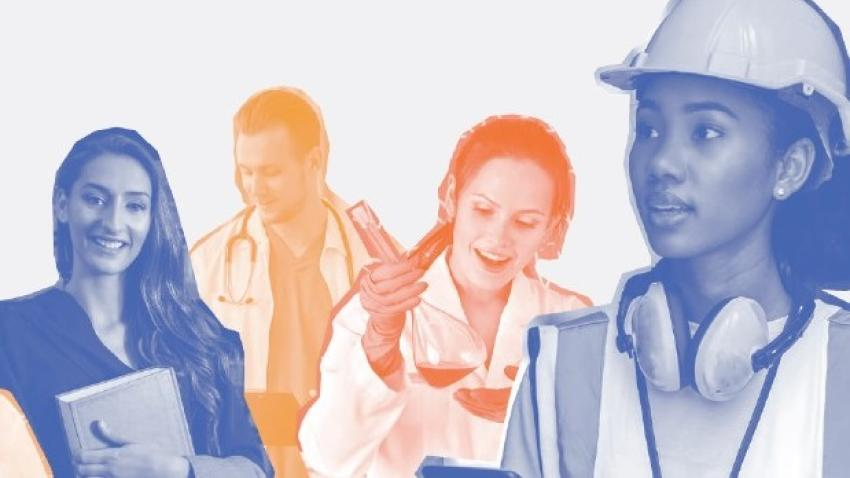Don't miss the series of debates linked to the open consultation on learning mobility for all
The European Commission has launched a debate on "How to make learning mobility a reality for all?"
An accessible learning mobility is one of the priorities of the European Education Area and the European Commission is working to achieve it, which is why this year, among other things, it is preparing a proposal for a Council Recommendation on learning mobility. The Commission is also asking EU citizens to take part in a public consultation and a series of debates on the subject, as part of the process of mapping barriers to learning mobility and developing guidelines to overcome them. These will explore how to improve accessibility and awareness of opportunities for international learning mobility for all learners and trainers. The results will be considered in the Commission's document.

The public consultation on learning mobility is open from early February until 3 May 2023 and everyone can be heard: learners and workers in all sectors of education and training (formal, non-formal or informal), youth workers, apprentices, sports workers, employers, decision-makers, researchers and the general public.
The series of debates was opened on 3 March directly by Commissioner Mariya Gabriel, who thanked all participants for contributing to the Commission's proposal for a Council Recommendation. The Council, in the format of Ministers for Education, Youth and Sport, is expected to discuss this proposal at its September 2023 meeting.
"Of course, we have Erasmus+, which has so far enabled more than 13 million people from over 33 countries to go abroad to study, work or volunteer. The programme's possibilities have been extended to vocational education and training, early childhood education and care, sport, and adult education. But we still have a lot of work to do. According to a 2022 Eurobarometer survey, only 15 % of young people have taken the opportunity to study or do a traineeship in another country. There are still barriers. And that is why we are meeting today. That is why you are here today. We need your help and ideas on how to change this," said Gabriel.
In total, the 3 sessions of citizens' dialogue will involve around 150 participants from all 27 EU Member States. All debates will also be broadcasted online:
- 3-5 March: defining future learning mobility in Europe and identifying different target groups
- 24-26 March: the main obstacles and challenges to mobility faced by different groups
- 28-30 April: citizens' recommendations to the Commission on how to increase learning mobility in Europe: key areas for improvement, proposals for solutions for different target groups
The Commission invites participants to consider the following points while contributing to the debate:
- the need to involve different groups of learners and trainers, in particular, those with limited opportunities (due to disabilities, health problems, economic, social, geographical and other barriers) and less mobile groups (e.g., pupils and teachers, apprentices and trainees, adult learners and educators);
- the need to keep mobility as environmentally friendly as possible in the choice of means of transport and the promotion of sustainable practices;
- the opportunities and challenges linked to digitalisation (e.g., better use of digital platforms for learning, linking on-site and online learning);
- the potential of learning mobility for intercultural dialogue, active citizenship, and the promotion of shared values.
For more information, see the Commission's website